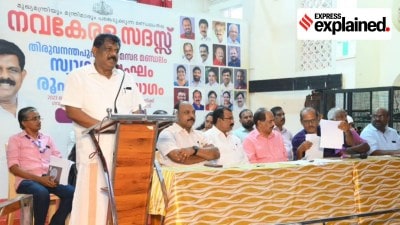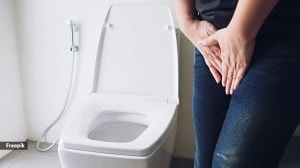Health sub-panel junks JPC report
It might be another year before you get to know whether your soft drink contains safe levels of pesticides. Describing as 8216;8216;unscie...

It might be another year before you get to know whether your soft drink contains safe levels of pesticides.
Describing as 8216;8216;unscientific8217;8217; the Joint Parliamentary Committee8217;s 300-page report on the subject 8212; led by Sharad Pawar, the panel came out with recommendations on what needs to be done 8212; the Pesticide Residues Sub-Committee, under the Ministry of Health, met for an hour today and indicated that 8216;8216;a year-long monitoring8217;8217; would be required before moving ahead.
The sub-committee decided to undertake a nationwide monitoring of soft drinks for pesticide residues. An experts group would be formed to work out modalities for the monitoring exercise.
According to the sub-committee, the JPC report is 8216;8216;unscientific8217;8217; and, for any standards to be set, additional monitoring and work will be required. The deliberations today will be forwarded to the Health Ministry.
It was clear in March itself that it would take longer than expected when the sub-committee asked 21 stake-holders, including Coca Cola and Pepsi, to come and depose before them. So far, only five have made presentations.
Incidentally, this is complete duplication of work done by the JPC who heard all these parties in great detail over six months. The JPC had concluded that strict standards need to be set and the eventual goal should be 8216;8216;unsafe even if trace8217;8217;. They had also clearly stated that even if other countries had not set standards, it should not dissuade our law-makers from doing so.
When Pepsico submitted their viewpoint in March to the sub-committee, they said: Minimum Residue Limits MRLs should be based on science and only be established on raw agricultural commodities unless it can be shown that the residues concentrate during processing.
In their presentation, they clearly stated that a multi-ingredient food product like a soft drink should not have MRL. They also rejected CSE8217;s argument that MRL should be based on the concerns of 8216;8216;nutrition8217;8217;, that is if a product is high on nutrition charts, standards can be lax. But in products like soft drinks with no nutrition, the standards have to be stringent. These are issues that JPC has already dealt with in detail. According to Pepsico, 8216;8216;unsafe even if trace8217;8217; has no scientific or health basis.
Coca Cola argued in their presentation that 22 pesticide residues had been found in Indian sugar, hinting at the fact that pesticides in their drink could easily come from there.
The CSE, which exposed the dangerous levels of pesticides in the soft drinks, is not among the 21 agencies called to present their views to the sub-committee. Commenting on today8217;s development, Sunita Narain, CSE director, said: 8216;8216;This is an attempt to undermine the significance of the Parliamentary committee. It8217;s an exercise in prevarication, delay and obfuscation.8217;8217;
- 01
- 02
- 03
- 04
- 05































